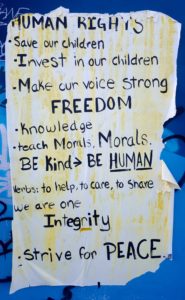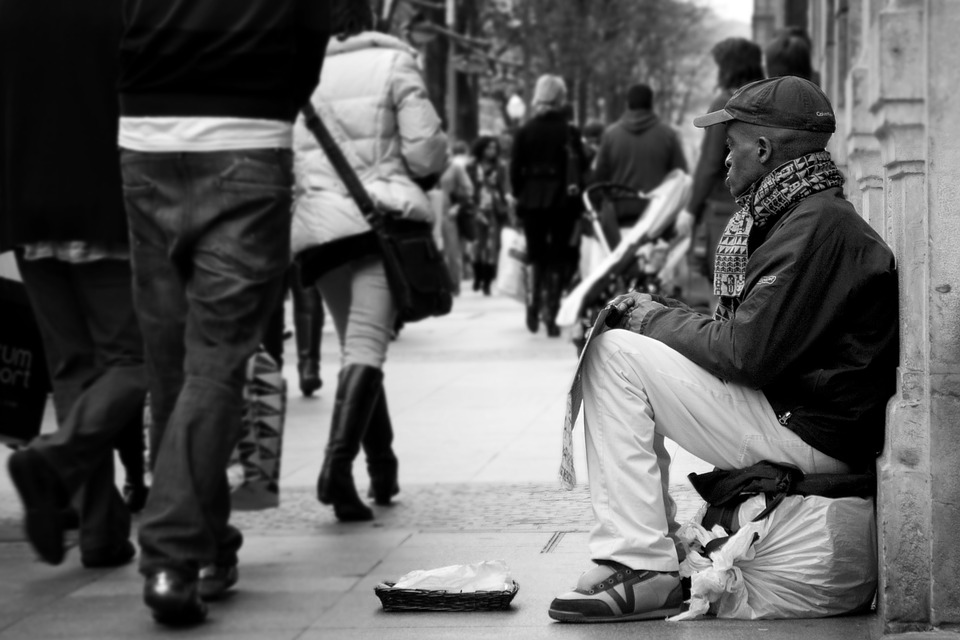With the rise of secular society generally, especially in Europe, the question of the continued relevancy and objectivity of morality has been a question that has doggedly refused to be answered. For near two millennia, morality has been a strict set of rules, a code set in stone, relayed by the priesthood and justified in the name of divinity. Humanity for almost its entire history has taken the idea that there is an objective, higher power, and it irrefutably defines our standards of behavior. How we came to interpret those standards fell to priests, clergy and a few interpreters of divine law.
Now we live in different times and have witnessed the “death of god” as Nietzsche put it. The power of the church in defining morality in its entirety has passed away, and even after over 200 years of the secular state we still haven’t addressed the question of morality. To say finally and sweepingly that morality has died is a reactionary position tainted by a misunderstanding over the nature of humanity. Just to look around you is proof that morality has not died. Most of our laws still cement themselves in a pre-atheistic Christian moral code. Why is suicide still illegal, for example? Simply because for all the time that has passed, we are still unsure of the reality that a secular rather than theocratic society places us in. With a few exceptions, we hold onto our old moral codes as a security blanket against the stark answer that the logic provides.
Logic says, objective morality system actually exists
This induces paralysis in those that can only see the world as being filled with right or wrong. To deny the existence of a strict moral code that is irrefutable strikes terror not only into the hearts of a lot of people but any authority based on that absolute. Governments and other authority figures will still state that they have a monopoly on morality, but without a logical objective ‘higher’ code or commandments this is simply hot air. Without an objective morality on which to justify without explanation, those two sides of right and wrong melt into a sea of possibilities, arguments, and assertions.
Few have dared to take the dissolution of objective morality to its conclusion, but such luminaries as Max Stirner and Benjamin Tucker in the mid to late 19th Century fully understood the logical conclusions. While Tucker, in his famous individualist periodical Liberty, might have shyed away, Stirner took it head-on. Stirner’s most famous work The Ego & His Own might be considered somewhat of a Rorscarch test, in that it speaks differently to every reader. Yet, one of the fundamentally agreed upon arguments that Stirner makes is that without an objective morality to be shackled to one is free to create any moral or ethical code that he or she wishes.
What does that mean?
The death of morality, or rather, the death of objective morality
It would be delusional folly to suggest that it has died in practice. Even the most hard-bitten atheist still has a moral code of sorts. Yet, even if we are to remove all absolutes from the idea of morality, we are still left with our own subjective code of ethics. Things we believe are right and wrong not because we are commanded to but because we simply believe them to be so.
 Such arbitrary relativism may seem like nonsense to some, but in essence, all morality is a stab in the dark, an invisible line drawn in mid-air. How can it be anything else without an objective higher power? Of course, this doesn’t necessarily preclude the existence of hard morals, just try not paying taxes for instance! Yet, those codes and laws now look like the tyranny they are, a system of beliefs coded into and forced upon all those who live under it, whether by their consent or not. With the veil of legitimacy that objective morality provides torn away, we finally understand that those who think they “know what is right for us” are completely mistaken.
Such arbitrary relativism may seem like nonsense to some, but in essence, all morality is a stab in the dark, an invisible line drawn in mid-air. How can it be anything else without an objective higher power? Of course, this doesn’t necessarily preclude the existence of hard morals, just try not paying taxes for instance! Yet, those codes and laws now look like the tyranny they are, a system of beliefs coded into and forced upon all those who live under it, whether by their consent or not. With the veil of legitimacy that objective morality provides torn away, we finally understand that those who think they “know what is right for us” are completely mistaken.
Taking moral system for granted
Yet even now we still take the idea of a moral system for granted. In a way, while we have come a long way in banishing the totality of religion from our society, we still hold onto a few of their tattered hand me downs. It may take centuries for us to finally understand the practical application and freedom of defining one’s moral code. Yet for now, we cling onto the idea that somewhere outside of us is a place that ‘good’ and ‘evil’ are defined. In the past, it was the priests, and now it is the politicians. A stark appraisal of the situation might be that might is right, and our new won relativism will be crushed by force. For some (in the field of conspiracy theory, usually) this is a plain truth, but it neglects a fundamental fact we are now free to define our own moral code without logical fallacy or fear of damnation.
We are free to grab our own nervous system and define things for ourselves. To think for ourselves. To question the ancient dogmas and worn out ‘truths’ and to make ourselves some new ones. As a result, our world turns from the black and white of good and evil to the relativist vista of uninhibited possibility. We are no longer bound by what ‘they’ think because finally, they have no more authority than we do. When nothing is true, everything is permitted.






